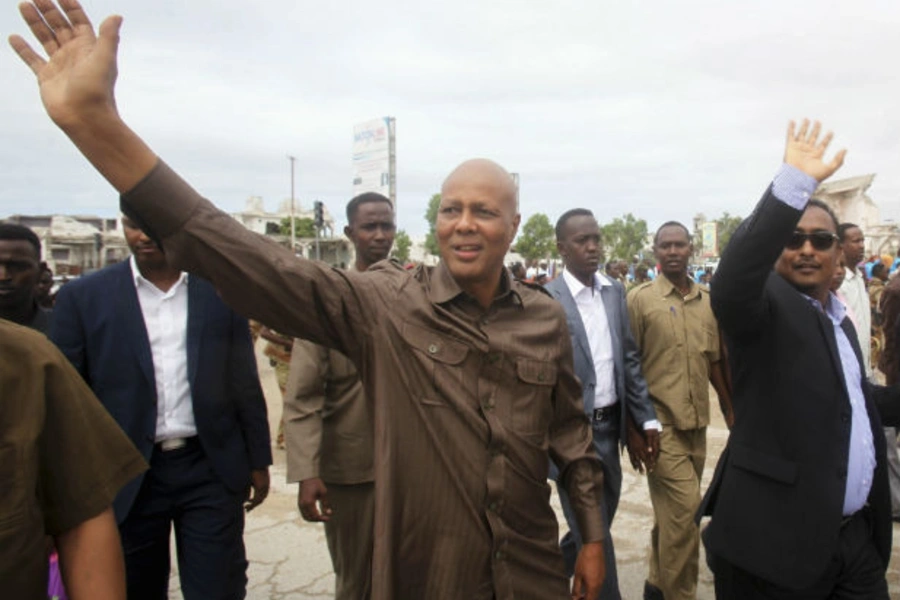More on:
This is a guest post by Alex Dick-Godfrey, Assistant Director, Studies administration for the Council on Foreign Relations Studies Program.
Recently, President Hassan Sheikh Mohamud organized for the Somali parliament to lodge a petition for a vote of no confidence against Prime Minister Abdiweli Sheikh Ahmed Mohammad. This comes on the heels of a spat between Ahmed and President Mohamud after the prime minister removed a minister of justice and constitutional affairs. That minister, now the minister of veterinary and animal husbandry, is a major ally of President Mohamud, who declared the move “null and void” citing constitutional authority.
If this all sounds familiar, that is because last year President Mohamud got rid of then Prime Minister Abdi Farah Shirdon for precisely the same reason, using precisely the same tactics. The president’s argument is as thin this time as it was last time. He is simply removing a political obstacle, and he will likely succeed.
There is little silver lining to this development. The president’s move was met with immediate displeasure by Somalia’s international partners. The United States pulled out of a recent conference on Somali development, citing concern with the “political turmoil” in the country. Further, Somalia has also been using recent gains against al Shabaab to try and lure investment back to the country, but some are now worried that this political bickering could scare investors away.
This cycle of a new prime minister every year is partly the fault of the president’s ambition, but is also evidence of a larger constitutional problem that allows him to claim powers he does not possess. It may be time for Somalia to begin considering a structural change in its governance system if it wishes to maintain its positive momentum.
There are two options. The first is to adopt a strong centralized system. It is becoming increasingly clear that a strong presidential office and a strong prime ministerial office cannot coexist without regular disruption. However, many Somalis do not trust a strong centralized system after strongman Siad Barre was forced from power. His horrible twenty-five year rule lingers in the minds of most Somalis.
A more realistic option is to finally set up a constitutional court in Somalia. This independent body would theoretically adjudicate constitutional questions and provide some stability and clarity to the constitution. At the very least it could provide some political stability by ruling on matters like the one currently under discussion. It would also have the added value of assisting during the creation of federal states.
These changes are unlikely. It is more likely that the cycle of instability in the prime minister’s office will continue. The current prime minister will be forced from power and the president will pick a new one in thirty days. Unfortunately, it seems likely that individual will run afoul of the president in a year’s time and the cycle will continue. These are setbacks Somalia cannot afford as it continues to battle an increasingly wild insurgency, readies itself for democratic elections in 2016, and tries to organize federal states.
More on:
 Online Store
Online Store
